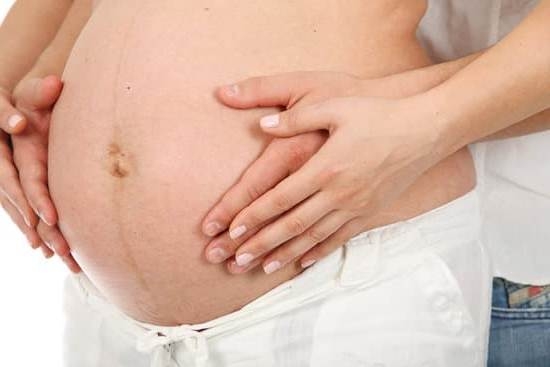Are you experiencing pregnancy symptoms early on and wondering what they could mean? Many women start to notice signs of pregnancy even before a missed period. Understanding these early symptoms can help you navigate the first trimester with more confidence and ease. From spotting and light bleeding to mood swings and fatigue, this article will explore the various signs of early pregnancy and how to cope with them.
During the early stages of pregnancy, it’s common for women to experience a range of physical and emotional changes. One of the earliest signs is spotting or light bleeding, which can be alarming for many women. Additionally, breast changes, morning sickness, fatigue, changes in appetite, and mood swings are also common symptoms experienced in the first few weeks after conception. By understanding these symptoms, you can better prepare yourself for what lies ahead in your pregnancy journey.
In this article, we will delve into each of these early pregnancy symptoms, discussing what to look out for when it comes to spotting and light bleeding, how breast changes manifest as a sign of early pregnancy, coping strategies for morning sickness and fatigue, as well as navigating changes in appetite and mood swings during this crucial time.
Prepare to gain insight into what to expect during the first trimester of pregnancy and how to manage these early signs with greater ease.
Spotting and Light Bleeding
What Is Spotting and Light Bleeding?
Spotting and light bleeding are common symptoms experienced by some women in the early stages of pregnancy. This can occur when the fertilized egg implants itself into the uterine wall, causing a small amount of blood to be released. While this may cause concern for some women, it is important to note that spotting or light bleeding can be a normal part of early pregnancy.
When to Seek Medical Attention
While spotting and light bleeding can be normal, it is important to be aware of when to seek medical attention. If the bleeding becomes heavy, is accompanied by severe cramping, or if you have a history of miscarriage, it is crucial to contact your healthcare provider immediately. They will be able to assess your symptoms and provide guidance on next steps.
Coping With Anxiety
Experiencing spotting or light bleeding during early pregnancy can understandably cause anxiety for many women. It is essential to practice self-care and seek support from loved ones during this time. Remember that every woman’s experience with pregnancy symptoms early in their journey is different, and it’s okay to feel worried. Don’t hesitate to reach out to your healthcare provider for reassurance and guidance as you navigate through this uncertain time.
Overall, while spotting and light bleeding can be concerning for many women, understanding what to look out for and when to seek medical attention can help alleviate anxiety during the early stages of pregnancy.
Breast Changes
During early pregnancy, many women experience changes in their breast tissue as one of the first signs of pregnancy. These changes can begin as early as one to two weeks after conception, making it an important indicator for those trying to conceive. Understanding the signs of early pregnancy in the breast tissue can help women recognize and confirm their pregnancy.
Breast Tenderness and Sensitivity
One of the earliest signs of pregnancy is breast tenderness and sensitivity. The hormonal changes that occur during pregnancy can cause the breasts to become swollen, sore, and sensitive to touch. This is often one of the first symptoms women notice, and it can be a key indicator that they may be pregnant.
Changes in Breast Size and Shape
In addition to tenderness, many women notice changes in the size and shape of their breasts during early pregnancy. The breasts may become larger and fuller as a result of increased blood flow and milk duct growth in preparation for breastfeeding. Some women also experience darkening of the areolas, or small bumps on the areolas known as Montgomery’s tubercles.
Vein Appearance
Another common sign of early pregnancy is the appearance of more noticeable veins on the breasts. The increased blood flow combined with hormonal changes can lead to dilated blood vessels, causing veins to become more prominent under the skin. This change is often noticeable within the first few weeks of pregnancy and can continue throughout the duration of gestation.
Recognizing these breast changes as potential early symptoms of pregnancy can help women take appropriate steps such as taking a home pregnancy test or seeking medical advice from a healthcare provider if they suspect they may be pregnant. It’s important to note that not all women will experience these symptoms, but for those who do, understanding these changes can provide a helpful guide during this crucial time.
Morning Sickness
One of the most common early pregnancy symptoms is morning sickness, which can actually occur at any time of day. Nausea and vomiting can be challenging to deal with, but it’s important to remember that these symptoms are usually a sign that all is progressing as it should in your pregnancy. Typically, morning sickness starts around the sixth week of pregnancy and tends to peak around the eighth to tenth week before gradually improving.
There are various methods that pregnant women can try to cope with morning sickness. Eating small, frequent meals throughout the day, staying hydrated by sipping water or ginger tea, getting plenty of rest, and avoiding foods with strong odors or flavors can help alleviate nausea. Some women also find relief from taking vitamin B6 supplements or wearing acupressure bands on their wrists.
It’s important for pregnant women who experience severe morning sickness or are unable to keep any food or fluids down to seek medical attention. This could be a sign of a condition called hyperemesis gravidarum, which may require treatment such as intravenous fluids and medication to prevent dehydration and malnutrition.
| Morning Sickness Coping Methods | Key Takeaway |
|---|---|
| Eating small, frequent meals | Helps alleviate nausea and maintain blood sugar levels |
| Staying hydrated with water or ginger tea | Aids in preventing dehydration and soothes the stomach |
| Taking vitamin B6 supplements | May reduce symptoms of nausea and vomiting |
Fatigue
Here are a few key points to consider about fatigue during early pregnancy:
- Slow down: It’s important for pregnant women to listen to their bodies and take it easy when they start feeling fatigued. Taking regular short breaks throughout the day and getting plenty of rest at night can help combat extreme tiredness.
- Stay hydrated: Dehydration can exacerbate feelings of exhaustion, so it’s crucial for pregnant women to stay hydrated by drinking plenty of water throughout the day.
- Gentle exercise: While it may seem counterintuitive, light exercise such as walking or yoga can actually help boost energy levels during pregnancy. However, it’s essential to consult with a healthcare provider before starting any new exercise regimen.
Recognizing fatigue as an early symptom of pregnancy and taking steps to manage it can significantly improve the overall well-being of expecting mothers during their first trimester. By being mindful of their energy levels and making necessary lifestyle adjustments, pregnant women can better navigate this common aspect of early pregnancy.
Changes in Appetite
During the early stages of pregnancy, many women experience changes in their appetite, including food aversions and cravings. These changes can be quite dramatic and may catch some women off guard. Food aversions are common and can cause certain smells or tastes to become intolerable, while cravings for specific foods may become intense.
One of the most common early pregnancy symptoms is a change in appetite. Many women report feeling repulsed by foods they once enjoyed, while others develop strong cravings for specific foods such as pickles, ice cream, or other unusual combinations. These changes are often attributed to hormonal fluctuations, but the exact cause is not fully understood.
It is important for pregnant women to listen to their bodies when it comes to their changing appetite. While it’s okay to indulge in cravings every now and then, maintaining a balanced diet is crucial for the health of both the mother and baby. If certain food aversions make it difficult to eat a variety of nutritious foods, it’s important to consult with a healthcare provider about potential dietary supplements.
| Early Pregnancy Symptom | Prevalence |
|---|---|
| Food aversions | Experienced by up to 85% of pregnant women |
| Cravings | Reported by approximately 60-90% of pregnant women |
Mood Swings
Here are some key points to consider about mood swings during early pregnancy:
- Hormonal fluctuations: The surge in hormones, particularly estrogen and progesterone, can have a significant impact on mood. These changes can lead to feelings of irritability, sadness, anxiety, or even euphoria.
- Coping strategies: It’s important for pregnant individuals to find healthy ways to cope with mood swings. This may include practicing relaxation techniques such as deep breathing or meditation, engaging in gentle exercise, or seeking support from loved ones.
- When to seek help: While mood swings are a normal part of early pregnancy, it’s essential to be mindful of any extreme or persistent changes in mood that may indicate a more serious issue such as depression or anxiety. If feelings of sadness or anxiety become overwhelming, seeking professional support is crucial.
Navigating the emotional ups and downs of early pregnancy can be challenging, but knowing what to expect and how to cope can make the experience more manageable. By being proactive about self-care and seeking support when needed, individuals can navigate the emotional rollercoaster of early pregnancy with greater ease.
Conclusion
In conclusion, being aware of and understanding the early symptoms of pregnancy can be incredibly valuable for women who are trying to conceive or suspect that they may be pregnant. The various signs such as spotting and light bleeding, breast changes, morning sickness, fatigue, changes in appetite, and mood swings can provide important clues before a missed period.
It is important to remember that every woman’s experience with early pregnancy symptoms will be unique, so it’s crucial not to compare oneself to others and instead focus on what feels normal for the individual.
Navigating the first trimester of pregnancy can be an emotional rollercoaster for many women, as they grapple with the physical changes happening within their bodies while also coming to terms with the impending reality of becoming a parent. This period can be particularly challenging for those experiencing intense pregnancy symptoms early on. Seeking support from healthcare providers, loved ones, and online communities can provide comfort and reassurance during this time.
Ultimately, while early pregnancy symptoms can be overwhelming at times, they are also a reminder of the incredible journey that lies ahead. Taking care of one’s physical and emotional well-being is key during this time, as it sets the stage for a healthy and positive pregnancy experience. By recognizing and understanding these symptoms while also seeking support when needed, women can confidently navigate the first trimester of pregnancy.
Frequently Asked Questions
How Soon Do Earliest Pregnancy Symptoms Start?
Earliest pregnancy symptoms can start as early as one week after conception, but most women may start noticing them around 4-6 weeks into their pregnancy. These symptoms can include fatigue, nausea, breast tenderness, and frequent urination.
How Can I Check if I’m Pregnant Without a Pregnancy Test?
While a pregnancy test is the most accurate way to determine if you’re pregnant, there are some signs that may indicate pregnancy, such as missed periods, nausea, breast changes, and heightened sense of smell. However, these symptoms are not definitive and it’s best to take a pregnancy test for confirmation.
When Do First Trimester Symptoms Start?
First trimester symptoms typically start around 6-8 weeks into the pregnancy and may include morning sickness, fatigue, increased urination frequency, food aversions or cravings, and mood swings due to hormonal changes. It’s important to seek prenatal care once these symptoms begin.

Welcome to my fertility blog. This is a space where I will be sharing my experiences as I navigate through the world of fertility treatments, as well as provide information and resources about fertility and pregnancy.





